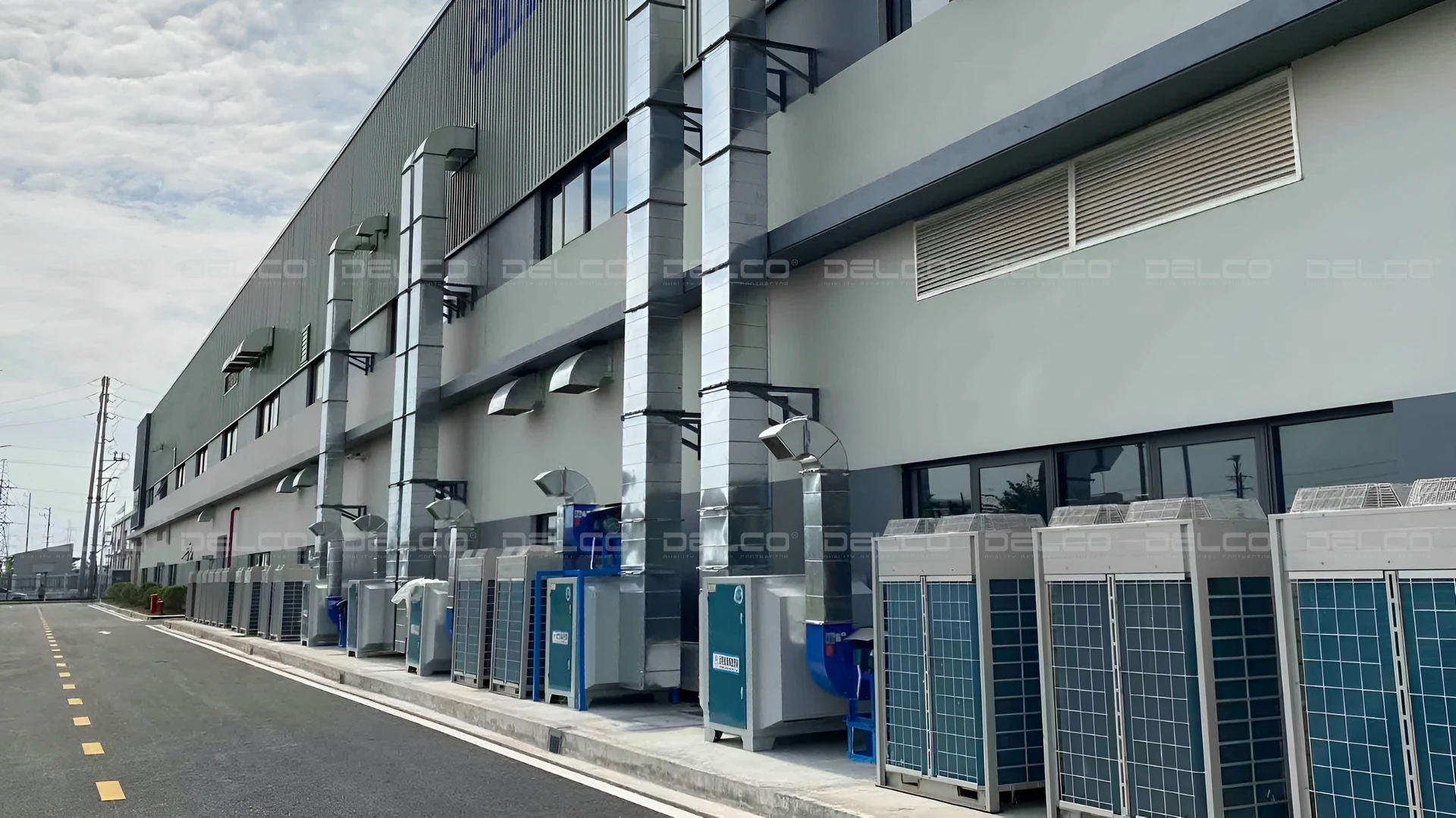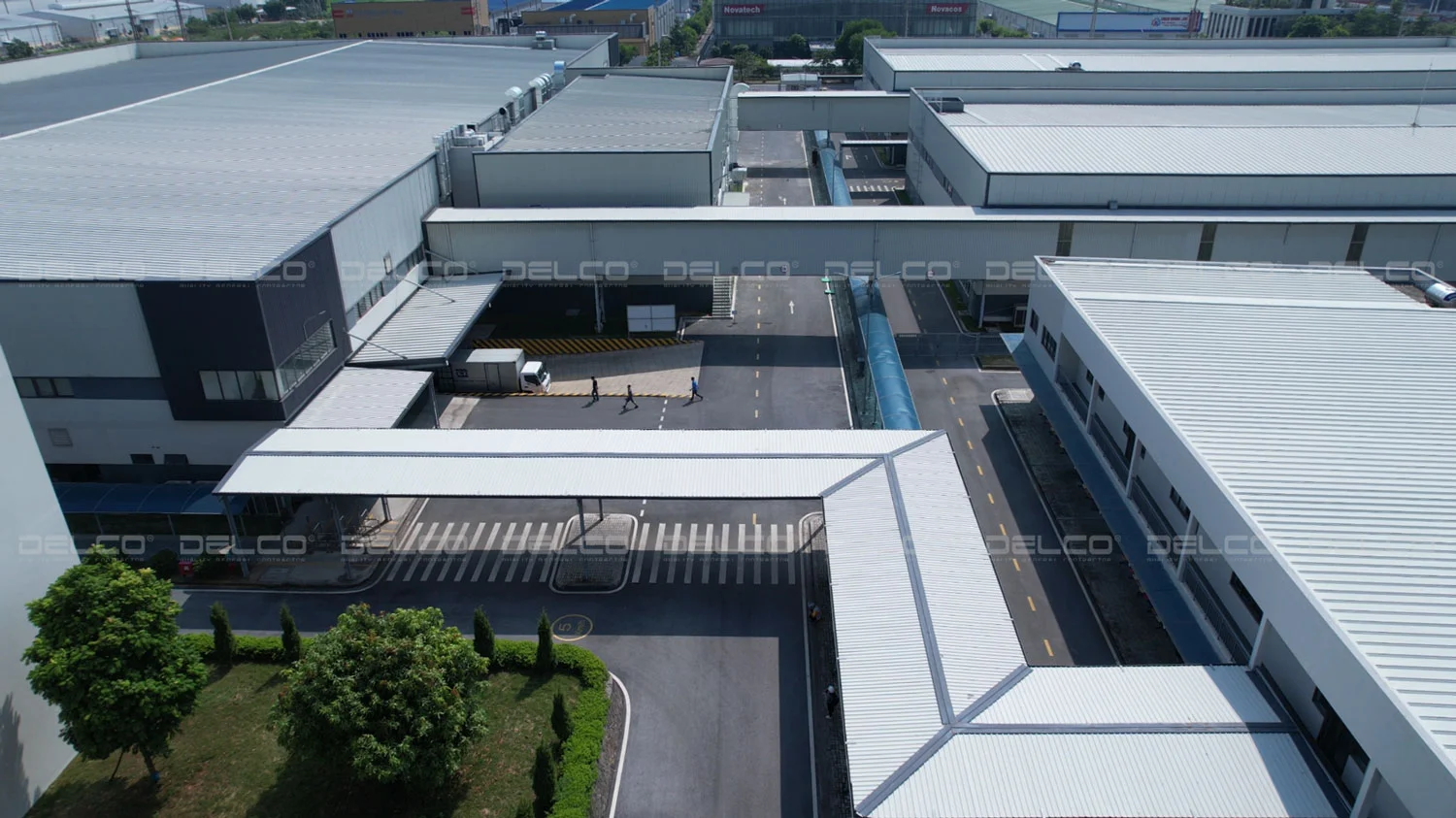HVAC systems (Heating, Ventilation, and Air Conditioning) play a critical role in maintaining optimal temperature and ventilation in various environments. Although industrial and commercial HVAC systems share similarities in scale and operational mechanisms, they have distinct differences in design purpose, system configuration, and maintenance requirements.
System Scale
Both industrial and commercial HVAC systems can be used for buildings of various sizes and scales, ranging from small to very large.
In the industrial sector, HVAC systems are typically installed in factories and workshops with floor areas ranging from 500 m² to 10,000 m². Depending on the area, height of the facility, and requirements for temperature, humidity control, etc., investors can choose specific HVAC designs and types of equipment accordingly.

The HVAC systems designed and installed by DELCO help large manufacturing plants maintain optimal environmental conditions, essential for production processes and product preservation.
Similarly, commercial HVAC serves spaces such as offices, shopping centers, ranging from medium areas (200-500 m²) to very large buildings like airports and large shopping centers (15,000 – 30,000 m²). The scale and cost of commercial HVAC systems are also flexible, depending on the budget and requirements of each project.
Functionality – Purpose of HVAC System Design
Industrial HVAC systems not only directly impact workers’ health but also affect the quality of production, preservation of raw materials, and finished products. Therefore, the technical requirements for industrial HVAC, such as stable operation and strict control of temperature, humidity, etc., are more stringent compared to commercial HVAC systems. Industrial HVAC often uses complex machinery and can integrate with smart factory or HVAC controllers to precisely regulate temperature, humidity, pressure, and air quality parameters.
On the other hand, commercial HVAC systems primarily aim to provide comfort and convenience for occupants without requiring strict, stable control over temperature and humidity. As a result, commercial HVAC systems are often designed more simply, helping reduce installation and operating costs.

The office HVAC system is implemented by DELCO, as the Design-build contractor for MEP system.
Technical Maintenance Requirements
Maintenance is a key factor to ensure stable and durable operation of HVAC systems. However, the maintenance requirements differ between these two types of systems.

Industrial HVAC system for electronic component manufacturing factory – designed and constructed by DELCO.
Industrial HVAC systems require regular maintenance to ensure optimal air quality and production environment. A single system failure can have significant impacts, affecting not only workers’ health but also the plant’s production. Therefore, industrial HVAC typically demands stricter maintenance, with regular inspections and component replacement processes.
Commercial HVAC systems also require regular maintenance to ensure energy efficiency and performance, but the level of maintenance is not as complex as industrial systems. Maintenance for HVAC systems in office buildings or shopping centers mainly involves routine equipment inspections, promptly detecting and addressing any issues if they arise.
See more: The main components of the HVAC system in factories and how they work
See more: HVAC technology trends in Vietnam in 2024






